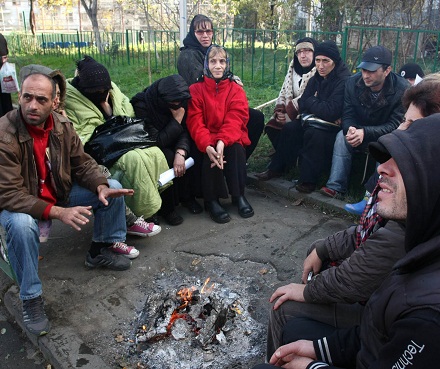
TBILISI, DFWatch — Two thirds still consider themselves unemployed in Georgia, a new survey shows.
67 percent say they are without a job in the latest survey of public attitudes by the National Democratic Institute (NDI). The number has not significantly dropped since the same question was asked in June (69%) and February (70%) of 2012.
Georgia’s state statistics bureau GeoStat claims that only 15 percent are unemployed.
NDI in its survey asked respondents what they consider the most important national issues. Answers ranked in order of significance: unemployment on top, followed by accessible medical services, then territorial integrity, poverty, pension, increased prices, education and salaries.
51 percent of the population thinks Georgia is mainly developing in the right direction.
When it comes to foreign policy, priorities remain unchanged, and people’s expectations are the same about Georgia’s integration into the European Union and NATO.
These are one half of a two part survey, carried out in November 2012. NDI will December 17 publish the results of the party ratings.
This is the third time NDI publishes both the public attitudes part and political party ratings of a survey. The organization didn’t use to publish the political party rating bit, but made it available to parties directly. Then party representatives would provide that information to the media, but only those parts of the results which were beneficial to them, and this caused misunderstandings.
Before the parliamentary election, NDI changed its policy and published the political party ratings as well. Presenting the new findings on Wednesday, Luis Navarro, chair of NDI Georgia, said that the results have not significantly changed from the previous ones. The most problematic issue is still solving social issues, with unemployment on top. According to the survey, 67 percent considers self to be unemployed, 33 percent says they’re employed.
Creating new jobs is on top among the most important national issues with 56 percent, followed by accessible medical services – 35 percent, territorial integrity – 29 percent, poverty – 28 percent, pensions – 26 percent, increased prices – 19 percent, education and salaries 15-15 percent.
51 percent of the questioned think the country is developing in the right direction, 18 percent don’t know, while 12 percent say that Georgia never changes; and 9 percent think the country is moving in the wrong direction.
42 percent think there is democracy in Georgia. For 55 percent of those questioned, democracy means freedom of speech and media; for 43 percent it means being equal under the law. 33 percent think democracy means defending human rights, while 16 percent say it means the opportunity to do what you want.
75 percent don’t know anyone who has been fired due to political views. In the last survey, published in August, 14 percent answered they personally know a person who was fired on political grounds.
The survey also asks questions about religious clashes which recently take place in connection with the new government being confirmed. Part of society believe those conflicts were inspired by the previous government, but factual material cannot confirm that.
Should Georgian Muslims be given the opportunity to conduct religious services on their own properties – 51 percent says yes, 29 percent says no, while 19 percent don’t know.
The prime minister recently appointed a special representatives for relations with Russia. Only four percent disapproves of this, while 27 percent don’t know. 40 percent think Russia is a threat to Georgia, but that the threat is exaggerated.
26 percent think Russia is a real threat to Georgia, while 22 think it is no threat at all, 11 percent don’t know.
77 percent give a thumbs up to the government’s declared goal of Georgia becoming member of the EU. 71 percent supports integration into NATO, while 42 percent welcome the decision by the US to boost Georgia’s defense capabilities.
51 percent don’t know when Georgia will join NATO, 22 percent expect this to happen in the next four years; 17 percent think Georgia will become NATO member after 2016, while 9 percent are skeptical saying that Georgia will never join NATO.
The survey was conducted between 14-25 November, 2012. 1 947 respondents were asked. The margin of error is 3 percent.

